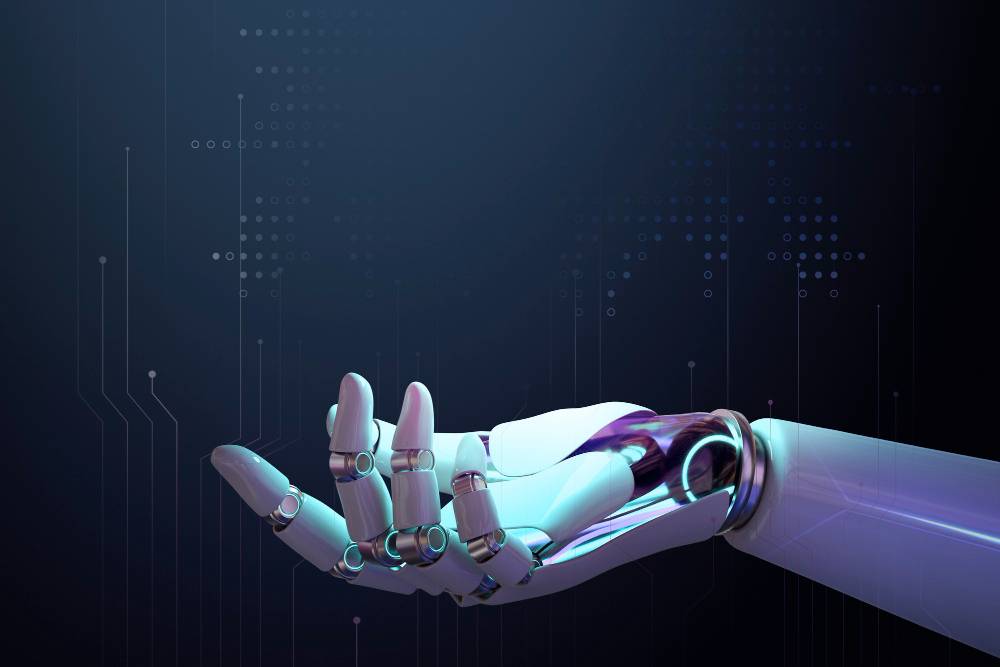In the fast-paced and ever-evolving world of marketing, staying ahead of the competition requires embracing cutting-edge technologies. Among these technologies, Artificial Intelligence (AI) has emerged as a game-changer, revolutionizing various aspects of marketing. From transforming digital advertising to enabling personalized customer experiences, AI has unlocked new possibilities for businesses. In this article, we will explore the power of AI in marketing, how it transforms digital advertising, enhances personalization, and revolutionizes overall business strategies.
The Impact of AI on Digital Advertising

Programmatic Advertising
AI-driven programmatic advertising automates the buying and selling of ad inventory in real-time. It optimizes ad placements, targeting, and bidding strategies, resulting in higher ad relevance and increased return on ad spend (ROAS).
Ad Targeting and Segmentation
AI algorithms analyze vast amounts of data to understand user behavior and preferences. This enables precise ad targeting and segmentation, ensuring that ads reach the most relevant audiences, and maximizing ad performance.
Dynamic Ad Creative
AI-powered dynamic ad creative tailors ad content in real-time based on user interactions, context, and preferences. Dynamic ads improve user engagement and drive conversion rates by presenting personalized content.
The Role of AI in Personalization
Personalized Product Recommendations
AI-driven recommendation engines analyze user behavior and past interactions to provide personalized product recommendations. Personalization enhances the customer experience and increases the likelihood of conversion.
Content Personalization
AI algorithms can personalize website content, email marketing, and social media interactions based on user preferences, delivering content that resonates with individual interests and needs.
Personalized Customer Support
AI-powered chatbots and virtual assistants offer personalized customer support, addressing customer inquiries and concerns in real-time. This creates a more satisfying customer experience.
AI in Business Strategies
Data-Driven Decision Making
AI analytics provide businesses with valuable insights into customer behavior, market trends, and campaign performance. Data-driven decision making enables businesses to optimize marketing strategies and allocate resources effectively.
Predictive Analytics
AI-powered predictive analytics forecasts customer behavior and market trends, enabling businesses to proactively respond to changes and capitalize on emerging opportunities.
Competitive Intelligence
AI can analyze competitor data and market trends, providing businesses with valuable competitive intelligence. This allows businesses to position themselves strategically in the market.
AI Marketing Automation
Automated Email Marketing
AI-driven email marketing automation streamlines the process of creating and sending personalized emails based on customer behavior and preferences, nurturing leads and driving conversions.
Social Media Management
AI tools can automate social media posting, analyze audience engagement, and even respond to customer inquiries, allowing businesses to maintain an active social media presence.
Lead Generation and Scoring
AI-powered lead generation tools identify potential customers and score leads based on their likelihood of conversion, enabling businesses to focus their efforts on the most promising prospects.
Embracing AI for Marketing Success
Invest in AI Marketing Tools
Businesses should invest in AI marketing tools that align with their specific needs and objectives, such as programmatic ad platforms, recommendation engines, and AI-powered chatbots.
Data Privacy and Ethics
As businesses adopt AI in marketing, ensuring data privacy and ethical use of customer data is paramount. Transparency and obtaining user consent for data collection are essential to build trust with customers.
Continuous Learning and Adaptation
AI technologies evolve rapidly, and businesses must continuously learn and adapt their strategies to leverage the latest advancements in AI marketing.
Future Trends in AI Marketing

1. Voice Search and Voice-Based Marketing
As voice assistants become more prevalent, AI will play a crucial role in optimizing content for voice search and enabling voice-based marketing interactions.
2. AI-Enhanced Augmented Reality (AR) Experiences
AI-powered AR technologies will provide personalized and interactive experiences, allowing businesses to engage customers in innovative ways.
3. AI-Driven Predictive Customer Service
AI will revolutionize customer service by predicting customer needs and providing proactive support, exceeding customer expectations.
Conclusion
AI is transforming marketing by revolutionizing digital advertising, enhancing personalization, and enabling data-driven decision making. From programmatic advertising to personalized customer support, AI’s impact on marketing is profound and far-reaching. Embracing AI in marketing strategies allows businesses to unleash its power for enhanced customer experiences, increased efficiency, and ultimately, marketing success in the digital age.
Frequently Asked Questions
Answer: Businesses can invest in AI marketing tools, prioritize data privacy and ethics, and continuously learn and adapt to leverage AI’s potential for marketing success.
Answer: AI marketing automation includes automated email marketing, social media management, and lead generation and scoring to streamline marketing processes and improve efficiency.
Answer: AI facilitates data-driven decision making, provides predictive analytics for forecasting, and offers competitive intelligence, helping businesses make strategic decisions.
Answer: AI enables personalized product recommendations, content personalization, and personalized customer support, creating more engaging customer experiences.
Answer: AI optimizes programmatic advertising, enhances ad targeting and segmentation, and creates dynamic ad creative to increase ad relevance and performance.




Leave a Reply